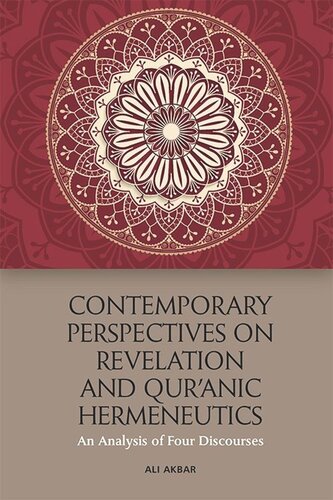

Most ebook files are in PDF format, so you can easily read them using various software such as Foxit Reader or directly on the Google Chrome browser.
Some ebook files are released by publishers in other formats such as .awz, .mobi, .epub, .fb2, etc. You may need to install specific software to read these formats on mobile/PC, such as Calibre.
Please read the tutorial at this link: https://ebookbell.com/faq
We offer FREE conversion to the popular formats you request; however, this may take some time. Therefore, right after payment, please email us, and we will try to provide the service as quickly as possible.
For some exceptional file formats or broken links (if any), please refrain from opening any disputes. Instead, email us first, and we will try to assist within a maximum of 6 hours.
EbookBell Team

4.0
76 reviewsA number of innovative hermeneutical approaches emerged in Muslim exegetical discourse in the second half of the 20th century. Among these developments is a trend of systematic reform theology that emphasises a humanistic approach, whereby revelation is understood to be dependent not only upon its initiator, God, but also upon its recipient, Prophet Muhammad, who takes an active role in the process.
Ali Akbar examines the works of four noted scholars of Islam: Fazlur Rahman (Pakistan), Abdolkarim Soroush (Iran), Muhammad Mujtahed Shabestari (Iran) and Nasr Hamid Abu Zayd (Egypt). His study shows that the consequences of taking a humanistic approach to understanding revelation are not confined to the realm of speculation about God–human relations, but also to interpreting Qur’anic socio-political precepts. And the four scholars emerge as a distinctive group of Muslim thinkers who open up a new horizon in contemporary Islamic discourse.